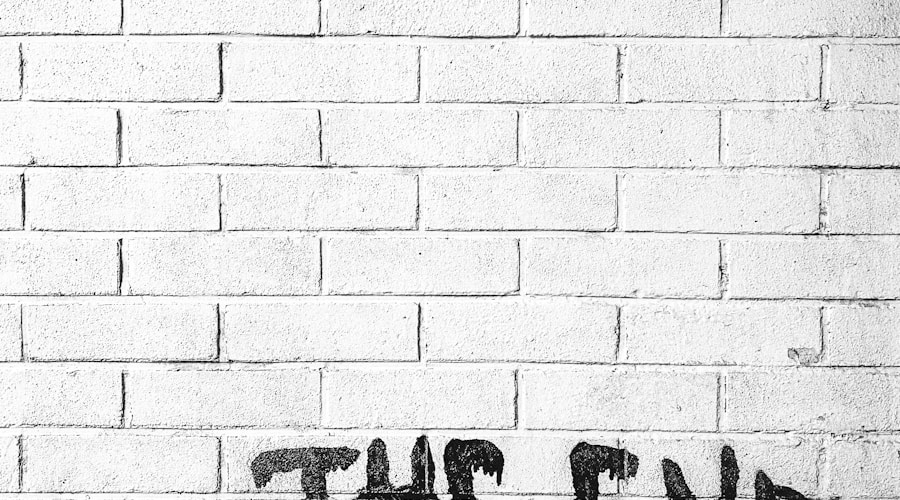As you navigate through your career, you will encounter various workplaces with unique company cultures. This means that finding the right fit for yourself is essential for your success and job satisfaction. Have you ever found yourself in a workplace where you just didn't seem to "fit in"? It's a common feeling, and it can have a significant impact on your overall experience at work.
Cultural fit is a buzzword in the world of HR and recruitment, but what does it really mean, and why is it important? In this article, we will explore the concept of cultural fit and its significance in the workplace. We will delve into the effects of cultural fit on team dynamics, individual happiness, staff turnover, company performance, diversity, and much more. Get ready to unlock the secrets of finding your place in the professional world!
Introduction to Cultural Fit
Cultural fit, in the context of the workplace, refers to how well an individual's values, beliefs, and behaviors align with those of the organization. It is about finding a match between your personality and the company's culture. As a result, it can impact your happiness at work, your ability to collaborate with colleagues, and your overall job satisfaction.
Finding a cultural fit is important because it contributes to a harmonious work environment. When your values align with those of the company, you'll feel more comfortable being yourself in the workplace, leading to a more enjoyable work experience. As former Starbucks executive Howard Behar says, "The most important aspect of a strong culture is that it aligns people around a shared set of values and beliefs. This creates an environment where people employ their discretionary energy."
In summary, understanding and assessing cultural fit is crucial in the workplace because it impacts how you feel at work and your ability to work effectively with others. In the following sections, we'll explore the importance of cultural fit in more depth and how it influences various aspects of the workplace.
Understanding Cultural Fit Importance
Cultural fit is crucial for a workplace because it affects how comfortable you feel in your job environment and how well you can work with your colleagues. As the Harvard Business Review puts it, "If you hire someone who doesn't really fit into the company culture, you'll be looking for a new employee again soon."1
When you fit into a company's culture, you are more likely to feel connected, engaged, and motivated. This is because, as the Society for Human Resource Management notes, "the organization's culture is its identity and it's important for employees to feel connected to it."2
Understanding the importance of cultural fit also means recognizing that it goes beyond just personal preferences. As organizational psychologist Adam Grant says, "Culture fit is an important consideration in hiring. But it's often mistaken for how much people have in common, rather than for how well they complement each other."3 In other words, it's about finding individuals who can work cohesively within the existing team dynamic, rather than just finding people who share the same background or hobbies.

Effects on Team Work
Cultural fit in the workplace can significantly impact teamwork and collaboration among employees. When individuals share similar values, beliefs, and communication styles, teamwork tends to be more effective and productive. According to Dr. Tomas Chamorro-Premuzic, an international authority in psychological profiling, "Cultural fit is the glue that holds an organization together."
When team members are aligned culturally, they can better understand and respect each other's perspectives, leading to smoother communication and fewer misunderstandings. This can result in a more harmonious work environment where teams can collaborate more efficiently.
On the other hand, a lack of cultural fit can lead to miscommunications and misunderstandings, hindering the effectiveness of teamwork. An article in the Harvard Business Review highlights the importance of cultural fit in teamwork, stating, "When employees do not fit well with their organization's culture, they are more likely to be dissatisfied and exhibit less commitment to the team's goals."
Overall, cultural fit plays a vital role in promoting a positive and cohesive team dynamic, which is essential for achieving common goals and driving the success of the organization.
Happiness and Job Satisfaction
Cultural fit plays a significant role in your happiness at work and job satisfaction. When you feel like you belong in the workplace environment, it can positively impact your overall wellbeing and contentment with your job.
"Being able to connect with my colleagues on a personal level and share similar values and beliefs has made a world of difference in my job satisfaction. It's like working with friends, and I look forward to coming to work every day." - Sarah M., Marketing Coordinator
When you are surrounded by like-minded individuals who share similar values and work ethics, it creates a sense of camaraderie and support. This can lead to a more positive and enjoyable work experience, which directly affects your happiness at work.
In a study by the Harvard Business Review, it was found that employees who fit well with their organization, colleagues, and supervisor had greater job satisfaction, were more likely to remain with their organization, and showed superior job performance.
When you feel that you fit into the cultural fabric of your workplace, it can lead to a sense of fulfillment and purpose. This in turn can significantly impact your overall job satisfaction and happiness.
****: Emma Seppala and Kim Cameron, "Proof that Positive Work Cultures are More Productive," Harvard Business Review (2015).
Staff Turnover and Retention
One of the key reasons cultural fit is important in the workplace is its impact on staff turnover and retention. When employees feel like they fit in with the company culture, they are more likely to stay with the organization for the long term. According to a study by Deloitte, 94% of executives and 88% of employees believe a distinct workplace culture is essential to business success.
When asked about the importance of cultural fit in reducing staff turnover, Sarah, a human resource manager, emphasized, "Employees who feel like they fit in culturally are more likely to stay with the company. This not only saves the organization money but also helps maintain stability and continuity within the team."
By creating a work environment where employees feel like they belong, organizations can reduce the costs associated with high turnover rates. This includes expenses related to recruitment, onboarding, and training of new employees. Retaining staff members who are a good cultural fit also allows a company to benefit from the experience and expertise of long-term employees.
In his book, "Good to Great: Why Some Companies Make the Leap... and Others Don't," Jim Collins highlights the significance of retaining the right employees, stating, "The old adage 'people are your most important asset' is wrong. The right people are."
Retaining the right employees who fit into the company culture can significantly contribute to the success and growth of an organization. It fosters a sense of stability, collaboration, and loyalty, which are essential components of a thriving work environment.
Company Performance and Growth
When your team members are culturally aligned, your company's overall performance and growth can see a significant boost. According to a study by Deloitte, organizations that focus on cultural fit are 3.7 times more likely to experience higher revenue growth. This is because a cohesive culture fosters better communication, teamwork, and collaboration, leading to more innovative and efficient processes. As a result, your business can stay ahead of the competition and adapt to changes in the market more effectively.
Moreover, a strong cultural fit can also lead to increased creativity and productivity among your employees. When everyone is on the same page in terms of values and goals, they are more likely to feel motivated and inspired to contribute their best work. As Simon Sinek, author and motivational speaker, puts it, "When people are financially invested, they want a return. When people are emotionally invested, they want to contribute" .
By focusing on cultural fit, you can create an environment where your employees feel emotionally invested in the success of the company. This can lead to a more dedicated and driven workforce, ultimately driving the company towards higher levels of performance and growth.
In conclusion, nurturing a culture that aligns with the values and goals of your employees can lead to a more cohesive and productive work environment, ultimately resulting in improved company performance and growth.

Cultural Fit and Diversity
Cultural fit doesn't mean hiring people who are all the same. It's about finding individuals who can work well together and complement each other's strengths and weaknesses. It's about creating a diverse yet cohesive team that can bring different perspectives to the table.
According to Patty McCord, the former chief talent officer at Netflix, "Cultural fit doesn't mean 100% agreement on everything; it means that how you go about working together is aligned."
Diversity brings different viewpoints, experiences, and ideas, which can lead to more innovative solutions and better decision-making. It also fosters a more inclusive and welcoming work environment, which can attract a wider pool of talent from different backgrounds and experiences.
When different cultural backgrounds come together, there's an opportunity for learning and growth. As Jon Gruber, the CEO of Daring Fireball, puts it: "Having a diverse team in terms of culture and background allows everyone to learn from each other. It fosters respect and empathy, and that translates into better collaboration and creativity."
In this way, cultural fit and diversity go hand in hand. A workplace that values cultural fit will also value diversity and inclusivity, recognizing the unique contributions that each individual brings to the table.
Conclusion
In conclusion, cultural fit is a crucial element in the workplace that influences team dynamics, job satisfaction, staff retention, and overall company performance. It ensures that employees can work together harmoniously, share common goals and values, and contribute effectively to the organization's success.
As a result of this, it is essential that companies prioritize cultural fit during the hiring process to build a cohesive and productive workforce.
In the words of Simon Sinek, "Customers will never love a company until the employees love it first." This quote underscores the significance of creating a positive internal culture that resonates with the company's values and mission.
So, next time you find yourself looking for a new job or evaluating potential hires, remember to consider not just the skillset, but also the cultural fit. It can make all the difference in creating a thriving and fulfilling work environment.

2Society for Human Resource Management, SHRM Foundation's Effective Practice Guidelines, (2016)
3Adam Grant, Organizational Psychologist, (2020)
4Tomas Chamorro-Premuzic, "Cultural Fit is the Glue that Holds an Organization Together" (Harvard Business Review, 2017)
5Jim Collins, Good to Great: Why Some Companies Make the Leap... and Others Don't (2001)
6Simon Sinek, "Start with Why: How Great Leaders Inspire Everyone to Take Action". Portfolio, 2011.
7Patty McCord, Powerful: Building a Culture of Freedom and Responsibility (2018)
8Jon Gruber, Daring Fireball: The Talk Show (2015)
9Simon Sinek, "Start with Why: How Great Leaders Inspire Everyone to Take Action"
